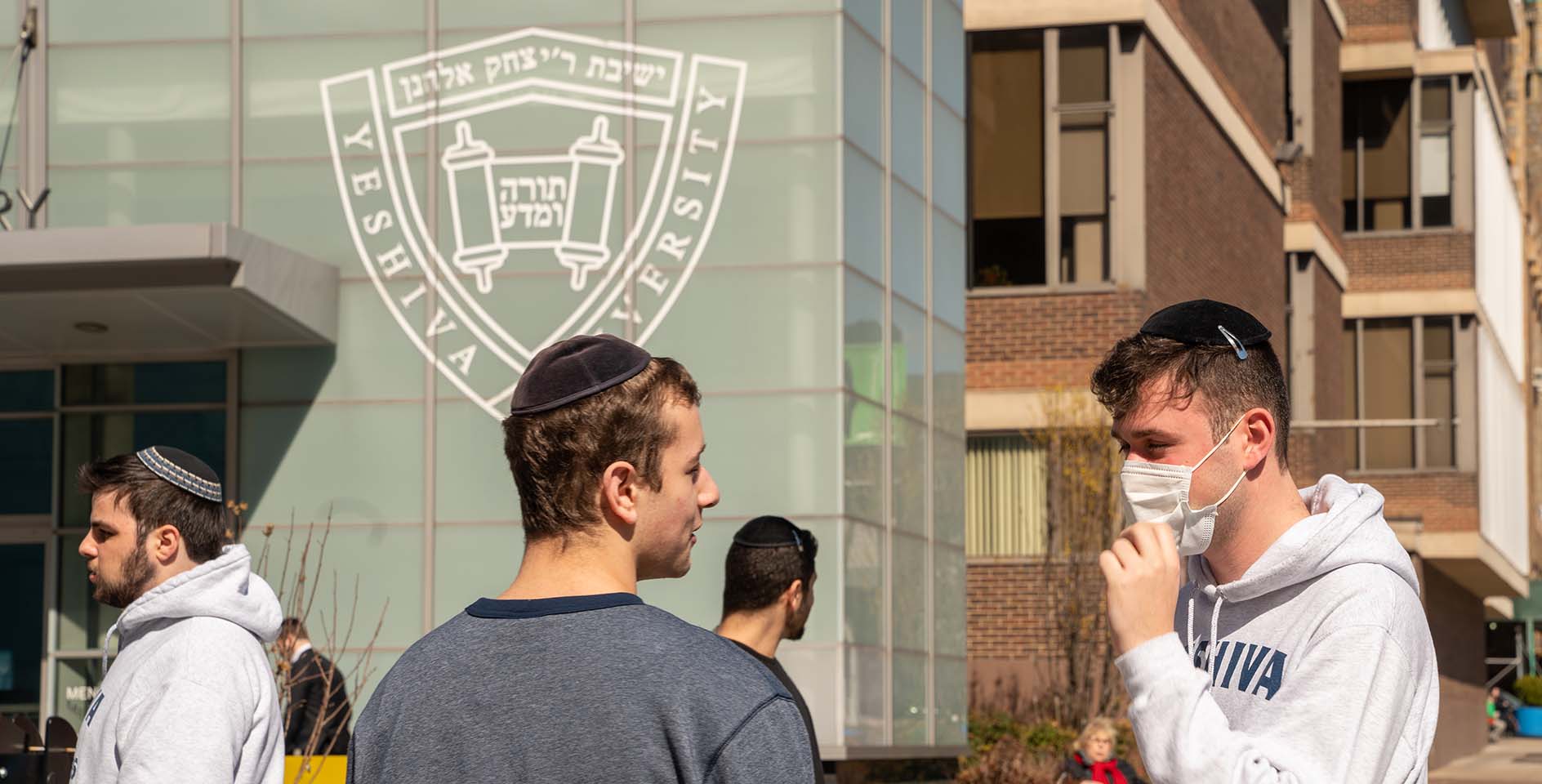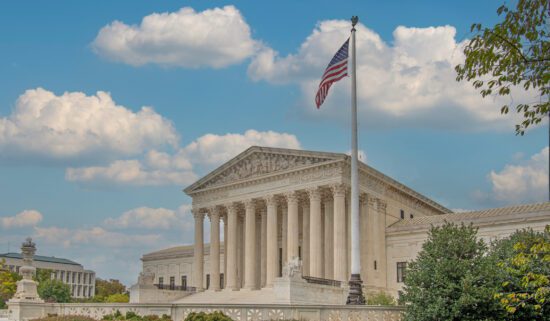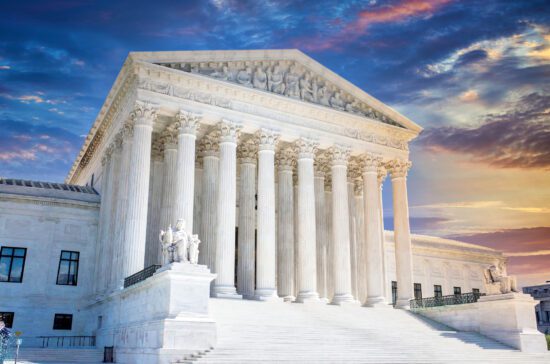Update: Since this explainer was originally posted, a stay has been agreed to by both Yeshiva University and YU Pride Alliance. This means that other student groups may operate normally, and Yeshiva does not have to recognize YU Pride Alliance on campus while its appeal is considered
On Wednesday, the Supreme Court ruled 5-4 to vacate a previous stay by Justice Sotomayor and deny Yeshiva University’s emergency request to intervene in its dispute over recognition of an LGBTQ group on campus. A New York court has ruled that Yeshiva must recognize the group on campus, despite it being a violation of Yeshiva’s deeply held religious beliefs, even while the university’s appeal works its way through state court. The ERLC joined a brief in this case asking the Supreme Court to provide relief for the university. The brief reasoned that this issue was not limited to Yeshiva University but has broader implications for religious institutions who wish to carry out their missions according to their deeply held religious beliefs.
In its denial, the court said that Yeshiva University had other avenues in New York courts in which to seek relief before coming to the Supreme Court. However, in the dissent of the denial, four justices state that they “are likely to vote to grant certiorari if Yeshiva’s First Amendment arguments are rejected on appeal, and Yeshiva would likely win if its case came before us.” This is a hopeful signal that if Yeshiva does not find relief in the state courts, it may likely return to the Supreme Court to again seek protection.
What are the facts of the Yeshiva University case?
Yeshiva University is a Modern Orthodox Jewish center of higher education. The university was petitioned by a student LGBT group (YU Pride Alliance) for recognition, which the university declined. The university argued that doing so would violate their mission as a religious training center. Though the university and its president, Rabbi Ari Berman, want students of all sexual orientations and gender identities to be welcomed, the university also wants to uphold their understanding of the Torah and its traditional understanding of gender and sexuality. The student group claims that failure to recognize the group has deprived them of funds which other groups receive, as well as the ability to notify students through a shared email list.
YU Pride Alliance has petitioned lower courts to force the university to recognize their group. The New York state courts agreed with the plaintiffs, arguing that the university was primarily an education institution rather than religious organization. The university appealed the ruling stating, “As a deeply religious Jewish university, Yeshiva cannot comply with that order because doing so would violate its sincere religious beliefs about how to form its undergraduate students in Torah values.”
What is the current status of the case?
In a ruling on Friday (Sept. 9), the Supreme Court in an order signed by Justice Sotomayor stayed the ruling of a New York State court which had ordered the university to recognize the student group. While the order was appealed, state court judges had refused to stay the order. The Supreme Court stay was overruled when the whole Supreme Court weighed in on Wednesday, Sept. 14, denying the request. Yeshiva University now must decide its next steps in the New York courts, but if it is unable to find relief, it is likely to return to the Supreme Court again.
As Baptist Press reported, “the school may ask state courts ‘to expedite consideration of the merits of their appeals,’ the justices said. It also may file a motion with the Appellate Division for permission to appeal to the New York Court of Appeals the denial of stay in the lower court and seek expedited consideration of the motion, according to the order.” The Supreme Court has generally been amenable to religious liberty cases in recent years, with a clear 6-3 conservative majority that has also often been able to secure votes from more liberal judges as well.
What implications does the case raise for religious liberty?
At the heart of the Yeshiva University case is the right of religious organizations to teach and structure themselves according to their deeply held religious beliefs. The court’s initial ruling represents a clear overreach of government authority. The ruling would essentially force the university to choose between compliance with the law and sincerely held religious beliefs. Yeshiva does not engage in practices that are discriminatory in its failure to recognize the LGBT student group. Rather, it seeks to uphold its commitment to a traditional Orthodox understanding of gender and sexuality. The government has no clear and compelling interest in overruling the university, and as such should abstain from trampling the rights of the faithful.
At the same time, the case has wider implications because if courts can compel this private university, then they could also compel other religious organizations. At a moment when Congress has considered legislation such as the Equality Act, which would similarly force Christian and other religious institutions to support sexual orientation and gender identity laws, as well as the Respect for Marriage Act, which seeks to enshrine a federal right to same-sex marriage, there are clear points of conflict emerging between religious freedom and the sexual revolution. This court case is but the latest example of lower courts attempting to force religious institutions to change their religious convictions.
How should Southern Baptists think about the case?
Southern Baptists should stand with the defendants of Yeshiva University because we recognize that the rights of conscience and the free exercise of religious belief are matters beyond the state’s control. Yeshiva University seeks only to fulfill its mission to train Orthodox Jews to take their faith into a modern world, informed and shaped by a traditional reading of Torah. This is inseparable from who they are as an institution. To ask them to violate this is tantamount to asking Southern Baptist seminaries to do the same.
Southern Baptists have long been defenders of religious liberty for all, including religious minorities. Though Yeshiva University holds a view that the wider culture does not understand, and frankly abhors, that does not give the courts the ability to trample the rights of conscience. This is why the ERLC joined with other religious organizations in support of Yeshiva University’s right to teach in accordance with deeply held beliefs. The ERLC and Southern Baptists remain committed to defending the free exercise of religion, and of the right of religious education institutions to build their curriculum around their sincerely held beliefs.









